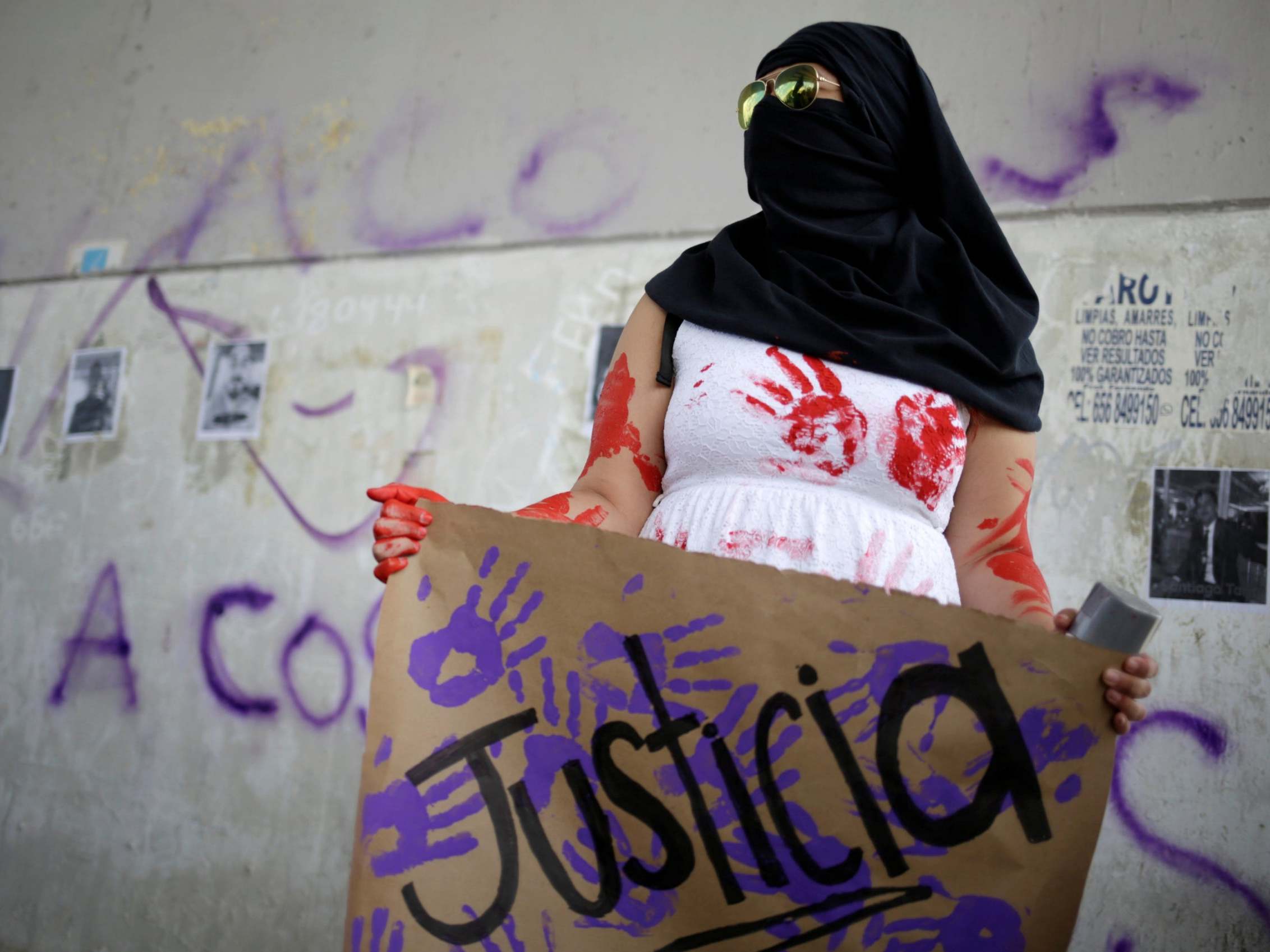Tens of thousands of women go on strike across Mexico to protest violence against them
Workplaces left near empty in stand against femicide and gender-based violence

Your support helps us to tell the story
From reproductive rights to climate change to Big Tech, The Independent is on the ground when the story is developing. Whether it's investigating the financials of Elon Musk's pro-Trump PAC or producing our latest documentary, 'The A Word', which shines a light on the American women fighting for reproductive rights, we know how important it is to parse out the facts from the messaging.
At such a critical moment in US history, we need reporters on the ground. Your donation allows us to keep sending journalists to speak to both sides of the story.
The Independent is trusted by Americans across the entire political spectrum. And unlike many other quality news outlets, we choose not to lock Americans out of our reporting and analysis with paywalls. We believe quality journalism should be available to everyone, paid for by those who can afford it.
Your support makes all the difference.Tens of thousands of women vanished from streets, offices and classrooms across Mexico on Monday as part of a nationwide strike to protest the violence they suffer and to demand government action against it.
The women’s absence from public spaces was intended to be a reminder that every day, 10 women in Mexico are killed - and so disappear forever, organisers said.
“It is no longer possible to continue living in a country where a woman can be murdered in a brutal way, without any consequence, and in a culture that allows for it to happen,” said Lorena Wolffer, an artist and feminist activist.
The strike, following a march that drew tens of thousands of women to the streets on Sunday, was a watershed moment for Mexico, a nation that has long failed to grapple with exaggerated masculinity and gender-based violence.
The unprecedented collective action also tested the leadership of president Andres Manuel Lopez Obrador. As smaller protests shook Mexico City in preceding weeks, he appeared unable to recognise the magnitude of the mounting frustration, blaming the killings of women on “past neoliberal policies,” and responding to protesters’ demands in ways critics described as tone-deaf, insensitive or condescending.
On Monday morning, Mr Lopez Obrador said the feminist movement was fighting for a “legitimate” cause, but argued, as he had in the past, that political opponents “who want to see his government fail” were helping instigate the march and the strike.
“I maintain that the main thing is to guarantee the well-being of the people,” he said when asked how his administration would respond to the protesters’ demands.
Going back to his campaign promises, he added that he would “fight social and economic inequality, combat poverty and the disintegration of families.”
As violence in the country escalates, the number of femicides, or the killing of women and girls killed because of their gender has also increased. In 2019, Mexican authorities registered 1,006 such killings, a 10 per cent jump over the year before.
The broad support for both the march and strike was also inspired by the global #MeToo movement and by outrage over the recent killings of Ingrid Escamilla, 25, who was killed, skinned and disembowelled, and of seven-year-old Fatima Cecilia Aldrighett whose body was found wrapped in a plastic bag.
The violence spurred a national debate over gender-based violence and Mexico’s entrenched culture of machismo that transcended the usual divisions of Mexico’s deeply stratified society — age, class, race and politics.
Many workplaces across the country were devoid of women Monday, and some schools shut down. Photographs of newsrooms, government offices and schools emptied of women and girls circulated on social media. Even Mr Lopez Obrador’s daily morning briefing with the press had rows of empty chairs because most female journalists boycotted it.
Isaura Miranda, a biologist, said she had put a lot of thought into her decision to join the strike because of her responsibilities at the research centre where she works.
“I just realised I had to do something,” said Ms Miranda, shedding tears. “I can’t carry on with this feeling of rage and impotence over so many deaths that are cruel, without dignity.”

“Also, I don’t want my daughter to go out one day and never come back again,” she added.
Some of the country’s biggest companies, including Walmart and Bimbo, assured women they would not face repercussions for staying home from work. Many public officials, celebrities and church leaders, as well as local, state and federal government agencies, backed the action, which was promoted under the hashtag #UnDiaSinNosotras, or #ADayWithoutUs.
Early on Monday, many subway ticket booths, which are mostly operated by women, were closed.
Authorities struggled to estimate how many women had participated. If all women participated, the action could cost the economy up to $1.37bn (£1.05bn), according to Concanaco Servytur, one of Mexico’s largest business groups.
Some women’s rights groups and feminist collectives have urged the government to create a special prosecutor’s office for femicides and cases of disappearance. Others had broader demands, from reproductive rights to equal pay.
The feminist movement in Mexico has gained traction in the past year and become violent at times, with some protesters attacking police stations or spray-painting slogans on government buildings.
On Sunday, a protester threw a molotov cocktail, injuring members of the press and police officers, including women.
Last August, the rowdy protests caught officials off guard. Claudia Sheinbaum, the mayor of Mexico City, at first condemned the demonstrators for defacing historical monuments. Later, facing a backlash, she met with women’s groups, created a registry of sex offenders and pushed for the passage of an ordinance that punishes the unauthorised sharing of sexual content with a six-year prison sentence.
Ahead of the strike, Ms Sheinbaum said she that the approximately 150,000 women who work for the city would not be penalised for not coming to the office Monday.
While some women celebrated the march and the strike, others remained circumspect about the real impact.
“Yes, we have conquered great victories recently,” said Ms Wolffer, the artist. “On the other hand, never have so many of us been murdered. More has to come out of this.”
And for many other women, protests remained beyond their reach.
Juanita Hernandez, a street food vendor who supports her four children by working six days a week, said her husband, now deceased, used to be physically abusive. One day, he hit her so hard he broke several of her teeth, she recalled.
“When my husband died I could finally rest from the abuse, but now I can’t afford to take a day to protest that same violence,” she said.
The New York Times
Join our commenting forum
Join thought-provoking conversations, follow other Independent readers and see their replies
Comments